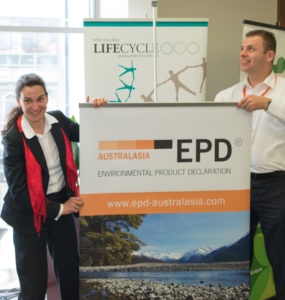
thinkstep-anz: How to boost environmental credentials and market reputation
thinkstep-anz

If you want your building products to be fully transparent about their environmental credentials and stand out to buyers you need third-party certification.
 In Australia and New Zealand, thinkstep-anz works with businesses and manufacturers to develop metrics-based Environmental Product Declarations (EPDs) and Life Cycle Assessments (LCAs). These are two related tools that forward-looking companies use to provide accurate information on products ranging from plasterboard, instant hot water taps and plywood through to entire buildings.
In Australia and New Zealand, thinkstep-anz works with businesses and manufacturers to develop metrics-based Environmental Product Declarations (EPDs) and Life Cycle Assessments (LCAs). These are two related tools that forward-looking companies use to provide accurate information on products ranging from plasterboard, instant hot water taps and plywood through to entire buildings.
Chief executive of thinkstep-anz, Dr Barbara Nebel, says that for companies competing for market share with imports, an EPD puts them on an equal footing with competitors that are already providing one. It also puts them ahead of those that aren’t by delivering certainty around product certification and a clear view of a product’s environmental impacts.
And it’s very advantageous if a firm or its end customers are implementing ISO 14001, as the standard now requires applicants to demonstrate lifecycle thinking. Or where a customer is calculating their carbon footprint and including the Scope 3 emissions relating to upstream suppliers, an EPD gives them the data on a product quickly.
SaveSave
SaveSave
SaveSave



thinkstep-anz has developed EPDs for companies including OneSteel, Dulux and Bluescope, and for industry sectors such as engineered timbers.
Part of the process of obtaining an EPD involves going through a life cycle assessment study. This helps a company identify the “hot spots” and where processes or inputs can be improved, and can also open up productive dialogues with suppliers.
The company’s LCA software – GaBi – is used by sustainability champions such as Lendlease to do whole-of-building LCA studies. GaBi leverages the company’s comprehensive databases including Life Cycle Inventory datasets.


Overall, third-party certification in the form of an LCA or EPD “adds to credibility”. It is also advantageous where projects are seeking Green Star or LEED certification.
thinkstep-anz also works with companies on wider corporate sustainability approaches such as materiality assessments, strategy development and comprehensive reporting, and has the capacity to calculate the “circularity”of products or procurement. This can include examining fine-grain detail such as the amount of recycled content in a product and its potential for recycling.
As the transition to a low-carbon, more circular economy gathers momentum, EPDs and LCAs can help future proof market share, Barbara says.
“Investors and other stakeholders are not alone in asking for credible facts and transparent information to guide decision-making..
“Increasingly, parties across the property asset lifecycle, from architects and specifiers through to asset owners and blue-chip tenants, are also expecting quantifiable data on the environmental impacts and credentials of the buildings, fitouts and consumables they procure.”








